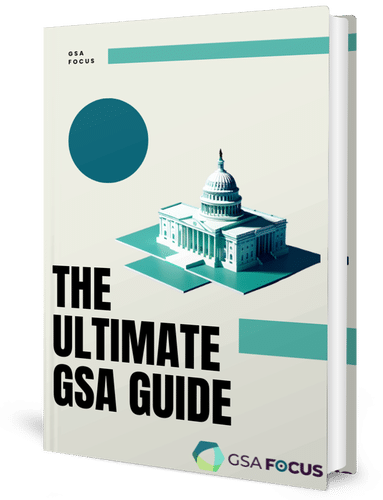Every year, the American government spends billions of dollars to support various functions and processes, from maintaining daily office transactions to undertaking specialized projects that require considerable funding. It is important to note that almost every purchase the government makes requires a government contract. Moreover, government agencies require that a part of these government contracts get allocated for small businesses.
Federal Contracts is increasingly becoming a popular choice among small and startup businesses, and for a good reason. Although the process of becoming eligible to compete for these contracts can be laborious and effortful, the wealth of new business opportunities that await at the end of government contracting will be worth it.
Benefits of Government Contracting
Table of Contents
ToggleThere is no new news that the U.S. government is the largest customer globally, buying all sorts of products and services in considerable quantities. As the law requires that the government gives a portion of contracts to small businesses, government contracting can open several avenues for financial growth.
The law requires the government to devote a segment of its contracts to small businesses for reasons, such as:
- To ensure that large businesses don’t “muscle out” small businesses
- To gain access to the new ideas that small businesses provide
- To support small businesses as engines of economic development and job creation
- To offer opportunities to disadvantaged socio-economic groups
Hence, turning to government contracting can help small businesses:
- To thrive amidst a market dominated by large businesses
- To facilitate innovation and offer new product or service ideas
- To contribute to the economic development by creating job opportunities
- To open a wealth of opportunities and stimulate business growth
How Government Contracting Works
Although the small business has priority, the process of requesting proposals, evaluating bids, and awarding contracts must still occur on a fair field such that government buyers welcome and consider any offers from all eligible businesses.
Before businesses become eligible to compete for government contracts, they have to undertake a series of steps to become an approved contractor.
First, businesses must secure a Dun & Bradstreet DUNS number. A DUNS number is a unique 9-digit identification number that you can acquire from registration for free. Dun & Bradstreet is the credit bureau for small business entities. While registration is for free, seeking a loan through Dun & Bradstreet requires an updated DNB file, which costs $599 to set up.
Second, businesses ought to obtain the federal government’s Central Contractor Registration (CCR). In registering for a CCR, the primary database of companies that can bid for government contracts, the GSA will ask businesses for their DUNS number, federal tax id name and number, banking account number, and necessary business data. This business data includes:
- Location of the business
- Number of employees at each location
- Average sales for each location in the past three years
While obtaining a CCR is free, it will take at least an entire day to accomplish.
Finally, businesses must accomplish another federal form that asks about supplementary, more detailed information about the company and its offers, the Online Representations, and Certifications Application (ORCA). Under this form, businesses will divulge information such as product descriptions, price and discount rates, and comprehensive performance history. GSA will use the ORCA to evaluate companies and their offerings.
After all the registrations are completed and approved, businesses must now undergo a final step of past performance evaluation through Open Ratings, Inc. Although many will request, not require, the submission of a performance evaluation report, it is important to note that not all government contract bids will require such evaluation. A filing fee of $125 must be settled, together with a list of customer references. While only four references are technically necessary for this process, businesses need to provide 15 to 20 customer references to ensure adequate response data to complete the evaluation. The evaluation process usually takes 20 days to complete if no significant issues arise.
Businesses have some sort of control over the references they put out. Of course, it might be wise to submit generally positive references; hence, it might be wise that businesses check with their chosen references first before submitting them in their proposal. Since these ratings are only valid for six months, businesses must ensure first if there is a need for such a report in the first place to avoid impending unnecessary costs. Notably, sending a report for multiple contracts will cost $25 each after two free report requests.
Once all compulsory registrations, and a supplementary one, are complete, businesses can now start bidding and submitting proposals for suitable government contracts. You can search available contract solicitations at beta.SAM.gov. On the other hand, companies offering products or services that qualify under GSA long-term contracts can find open solicitations at GSA.gov.
Businesses must note that each entry includes the hows and whens of bidding on the contract and other specific requirements.
If the government’s requests do not match the products or services offered by the business, you had better not waste time registering and undergoing the entire process. Rather, you should look for other open solicitations.
Set-Aside and Sole-Source Contracts
On the other hand, federal agencies are also responsible for publicly listing their contract opportunities, some of which are exclusively set for small businesses, hence set-aside contracts. In some cases, set-aside contracts may contain certain tasks on larger contracts. In other cases, when an entire set-aside contract is reserved and set for one specific small business, it is called a sole-source contract.
The SBA’s Role in Federal Contracts
The U.S. Small Business Administration (SBA), established in 1953, is the only cabinet-level federal agency entirely dedicated to the service of small businesses. As the primary go-to resource and voice for small businesses, the SBA offers counseling, capital, and contracting expertise. To aid and support small businesses in venturing into government contracting, the SBA works with federal agencies to award 23 percent of prime government contracts to eligible small businesses.
Conclusion
Government contracting opens several alleys of growth opportunities for small and startup businesses. Although not without struggles and challenges, small and startup companies can take advantage of many benefits in serving the largest customer in the world: The U.S. government.
Find out if you qualify for GSA contracts!



